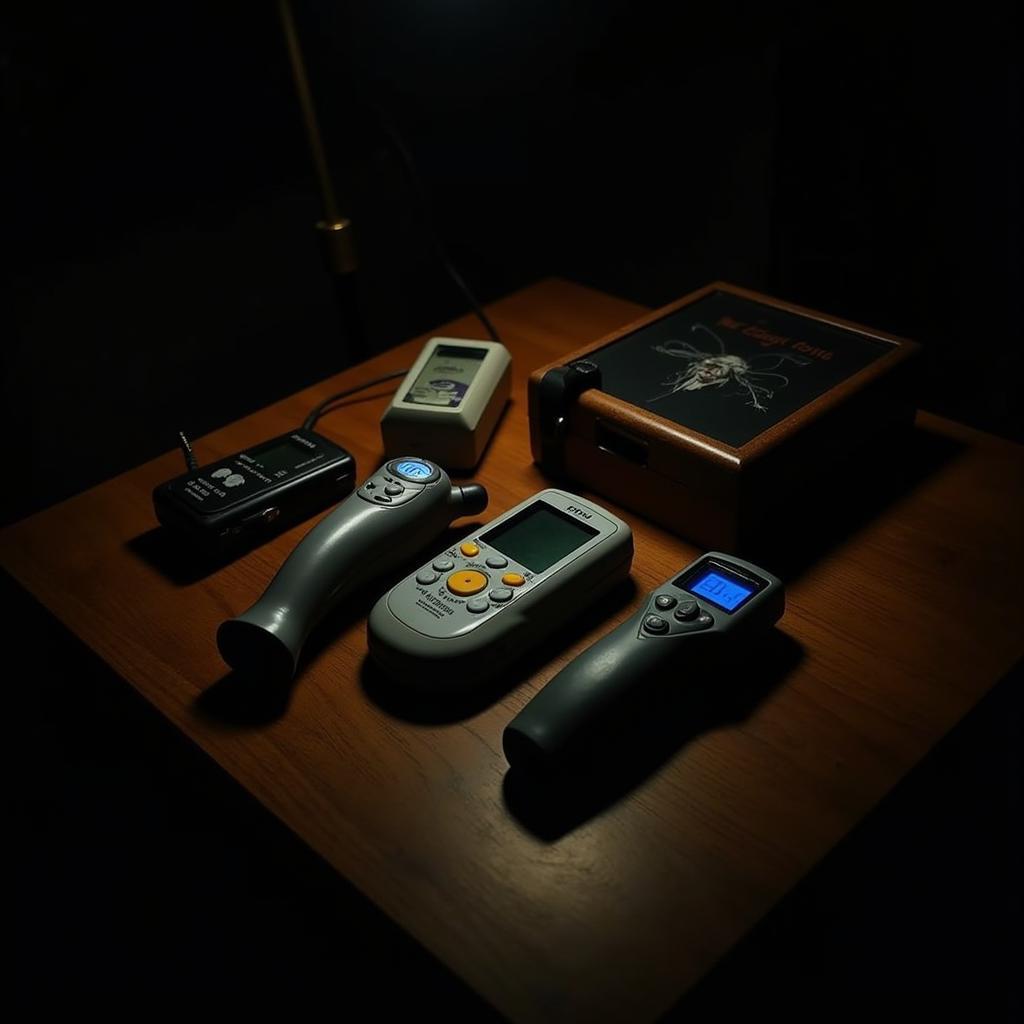The term “Research Professor” often conjures images of labs, data analysis, and groundbreaking discoveries within traditional academic fields. However, a fascinating subset of research professors dedicate their careers to exploring the unexplained, the mysterious, the paranormal. These individuals operate on the fringes of accepted science, seeking answers where conventional research often hesitates to tread. But what does a research professor in paranormal studies actually do? What drives their pursuit of the unknown?
Unraveling the Enigma: A Research Professor’s Methodology
A research professor specializing in the paranormal employs a unique blend of scientific rigor and open-minded inquiry. Their work is characterized by:
- Field Research: From reportedly haunted sites to alleged UFO sightings, these professors immerse themselves in environments where paranormal activity is reported. They meticulously document observations, interview witnesses, and collect physical evidence, if available.
- Data Analysis: Statistical analysis, pattern recognition, and critical evaluation of anecdotal evidence form the backbone of their research. They strive to identify trends, anomalies, and potential explanations for paranormal phenomena.
- Interdisciplinary Collaboration: Recognizing the complex nature of their field, these professors often collaborate with experts from various disciplines such as psychology, physics, sociology, and folklore to gain a holistic understanding of the phenomena they study.
- Historical Research: Delving into historical accounts, ancient texts, and folklore provides context and potential insights into recurring paranormal themes across cultures and time periods.
 Paranormal Investigation Tools
Paranormal Investigation Tools
Navigating Skepticism and Seeking Validation
One of the most significant challenges for research professors in paranormal studies is the inherent skepticism surrounding their field. To address this, they:
- Maintain Ethical Standards: Rigorous adherence to ethical research practices, transparency in data collection, and a commitment to objective reporting are crucial for building credibility.
- Engage in Peer Review: Submitting their findings to peer-reviewed journals, even if specialized in paranormal studies, allows for critical evaluation and potential validation from within the field.
- Promote Open Dialogue: Actively engaging with skeptics and critics, while maintaining professional courtesy, fosters healthy debate and can lead to new perspectives and research avenues.
 Research Professor Analyzing Data
Research Professor Analyzing Data
The Importance of an Associate Research Professor
Collaboration is key in the field of paranormal research. An associate research professor plays a vital role in supporting the lead researcher by:
- Conducting Literature Reviews: Staying abreast of the latest research, both within and outside of paranormal studies, is crucial. Associate professors often take the lead in conducting comprehensive literature reviews.
- Managing Data Collection: The sheer volume of data collected during paranormal investigations can be overwhelming. Associate professors often assist in organizing, coding, and analyzing this data.
- Presenting Findings: Associate professors may present research findings at conferences or co-author publications, helping to disseminate knowledge and advance the field.
Where Passion Meets Academia: The Drive to Explore
What motivates individuals to dedicate their lives to the study of the unexplained? For many research professors in paranormal studies, it’s a deep-seated:
- Desire for Knowledge: A fundamental curiosity about the nature of reality, consciousness, and the possibility of phenomena beyond our current understanding drives their pursuit of knowledge.
- Empathy and Understanding: Many researchers are driven by a desire to help individuals who have had paranormal experiences feel heard, validated, and less alone.
- Contribution to Science: While acknowledging the unconventional nature of their work, these professors see themselves as contributing to the expansion of scientific inquiry by exploring uncharted territories of human experience.
The Future of Paranormal Research: Blending Science and the Unexplained
As technology advances and our understanding of the universe evolves, research professors in paranormal studies continue to refine their methods and push the boundaries of knowledge. The field faces ongoing challenges, but the dedication and passion of these individuals remain unwavering in their pursuit of answers to some of humanity’s most enduring mysteries.
FAQ:
- What qualifications are needed to become a research professor in paranormal studies? Typically, a doctorate in a relevant field such as psychology, anthropology, or religious studies is required. However, some universities offer specialized programs in parapsychology.
- Are there any accredited universities offering degrees in paranormal studies? While specialized programs are rare, several universities offer courses or research opportunities in parapsychology or related fields.
- Is it difficult to find funding for paranormal research? Funding can be challenging to secure due to the controversial nature of the field. Many researchers rely on grants from private organizations or conduct independent research.
Delve Deeper into the Unknown
For those intrigued by the world of paranormal research, further exploration awaits:
- Explore the work of prominent researchers in the field to gain insights into their methodologies and findings.
- Consider joining a local paranormal investigation group to gain firsthand experience and connect with others interested in the paranormal.
Need guidance on your own Paranormal Research journey? Contact us at research@gmail.com or call 0904826292. Our team is available 24/7 to assist you. We’re located at: No. 31, Alley 142/7, P. Phú Viên, Bồ Đề, Long Biên, Hà Nội, Việt Nam.